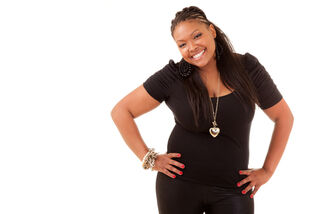Diet
Why We Can't Break Up with Dieting
Dieting has failed you, not the other way around.
Posted June 14, 2021 Reviewed by Gary Drevitch

If you engage in binge eating or emotional eating or experience food obsessions, dieting can be compared to a boyfriend you just can't break up with. You get together and everything is so good in the beginning. Then you fight and break up. But somehow, he worms his way back into your heart and again you feel the excitement of a new start. After a while, the "magic" wears off and you break up again. But the cycle keeps continuing. You just can't seem to let go of him, even though you know he's not good for you. A lifelong relationship with dieting is not much different. You may have been put on your first diet when you were a child. All the adults around you seemed to pay more attention to you when you were dieting and your body was changing. Another part of this "fatal attraction" is how the food industry tricks our palates leading to out-of-control cravings. This set you up for the cycle of reward followed by disappointment, followed by hope, and so on. As an adult, this cycle may have become intertwined with and mistaken for a solution to other problems in your life. Maybe by now, you realized that diets don't work.
You've been on a lot of diets and even though you lose weight, it doesn't last. After many diets, you may have come to the conclusion that there's more to your food and body image issues than a diet can fix. You feel good about this insight. You may even be working toward taking steps to make peace with food and your body.
But every time you see a TV ad for a diet, hear a friend talk about the latest, greatest diet she's on and how much weight she's lost, thoughts about "just one more diet" start racing through your mind, your heart rate speeds up, you start to feel that familiar feeling of excitement and your promises to yourself to never do this again suddenly seem kind of hazy and unappealing.
Why do you keep having thoughts about dieting? Here are some of the reasons I hear from clients:
- Maybe I should go on one last diet so I can see faster changes in my size; so I can feel better about myself.
- Maybe now that I know more myself and have had insights into why I'm struggling with food and body image issues, a diet would be more likely to work.
- My doctor has told me that this new diet has worked for him so I should try it.
But is there ever a situation where diets work? The simple answer to this is no. Even though the diet industry posts thousands of before and after pictures showing people who've lost weight, most depict short-term results. No one is going back 1 year, 2 years, or 5 years after that "after" picture to see how many people are still doing well. Research studies for decades have shown that while many people lose 5-10% of their weight while dieting, these results do not last. In preparing for a recent post I wrote about "intermittent fasting (IF)," I read an article by a physician-researcher who was a big proponent of the intermittent fasting diet, only to find out from his own research project that IF was not effective. At first, he kept questioning the data, because he had been on IF for some time and felt it had worked well for him. owever, over time, he could not ignore the obvious. He said: "I had done it and become an advocate for it because it worked for me," Weiss said. "That's a good lesson: Just because it works for me doesn't mean it will work for everyone."
The emphasis on weight loss in the medical profession is also part of the problem. In the consulting I do about diversity and equity, we talk about something called "implicit bias" that may be defined as describing what's happening when, despite our best intentions and without our awareness, racial stereotypes and assumptions creep into our minds and affect our actions. Implicit bias can also apply to bias and stereotypes that have to do with size. The medical profession is the #2 leading source of weight stigma. (Family is #1.)
The stubborn adherence to the belief that you have to be thin to be healthy has pushed many people to start or be put on diets that have triggered eating disorders or at the very least put them on the road to a lifetime of yo-yo dieting, which has its own negative health consequences. The drumbeat of "lose weight now" is despite the lack of good scientific evidence that is unburdened by the underlying implicit bias that "you can't be healthy unless you are thin" and despite the fact that the science has shown over and over again that diets don't work. You heard me right: Diets don't work. This is an important distinction: I'm saying that diets have failed us, not that you have failed because you either 1) didn't stay on a restrictive starvation program, or 2) regained lost weight after starving yourself.
Despite the science, the dream of the "magic diet" lives on. When this dream of finding the one, perfect diet is examined more closely, you may find that beneath it is the desire to fit in, to no longer be the person who looks different than other people, to be able to travel, to no longer be catcalled in the street because of your size and to feel you have an equal right to live, eat, and be as anyone else. This is a dream of belonging, and on that level, it is very understandable. Our society stigmatizes people who are different, marking them as "other."
Numerous studies have shown that there are powerful biological controls over our individual body size. What does this mean for you? It means you're not alone and it's not your fault. Society's messages have made people in larger bodies feel that they are failures, don't have willpower, or are too lazy to exercise. We know from studies on identical twins who were separated at birth that the twins end up with almost identical weights. Children who were adopted are almost always of same size as their biological parents, not their adoptive parents. All of this information flies in the face of weight stigma promoted by our society and the notion that "all you need to do is to eat less and exercise more."
Your size is not your fault and it's nobody's business. Having been very thin most of my life, only to gain weight as I got older, I struggled with thinking that if I just did a cleanse, tried this "healthy" diet, "changed my lifestyle," etc., I could get back to my former slim size.
What I've come to realize in working with thousands of women, and in my own experience, is that the issue of body size is very complex and there is no one solution. I came to the conclusion that I no longer wanted to spend time, money, and wasted effort trying to change my size. I decided to get back into life, enjoying life, surrounding myself with people who are supportive and loving, and letting my body do what it does.
I had a dream of unconditional love and acceptance. I did actually have this dream of being surrounded by people who were crazy about me, who loved me just the way I am — my size, my crotchety personality, my wisdom — just loved me to pieces. There was no fear of being rejected or judged. It felt absolutely amazing. When I woke up, I realized that there is no perfect world like that but I can be grateful for those in my life who love me and I can continue to work harder to love and accept myself. I felt it was a message from me to me — a message letting me know I'm surrounded by love, despite being in quarantine for over a year all alone; a message of encouragement that I am perfect, just the way I am.
There's nothing wrong with you if you're tired of being stigmatized because of your size or if you, too, dream of being surrounded by unconditional love and acceptance. It's only human to want to be treated with kindness and consideration, even outright admiration. Someone once said to me "everyone can be a '10' in the right situation." I keep finding that as I move through my life and my career, there are people who admire me, especially when I'm living my passion, doing the work I love, and being true to myself. As I value myself more, I am finding myself a "10" in more and more situations.
Until that dream world comes true, I try to find inspiration in quotes like this one:
‘….and I said to my body, softly "I want to be your friend", it took a long breath and replied "I have been waiting my whole life for this."’ —Nayyirah Waheed
Don't give up your dream of making peace with your body and with food. That dream is achievable.




